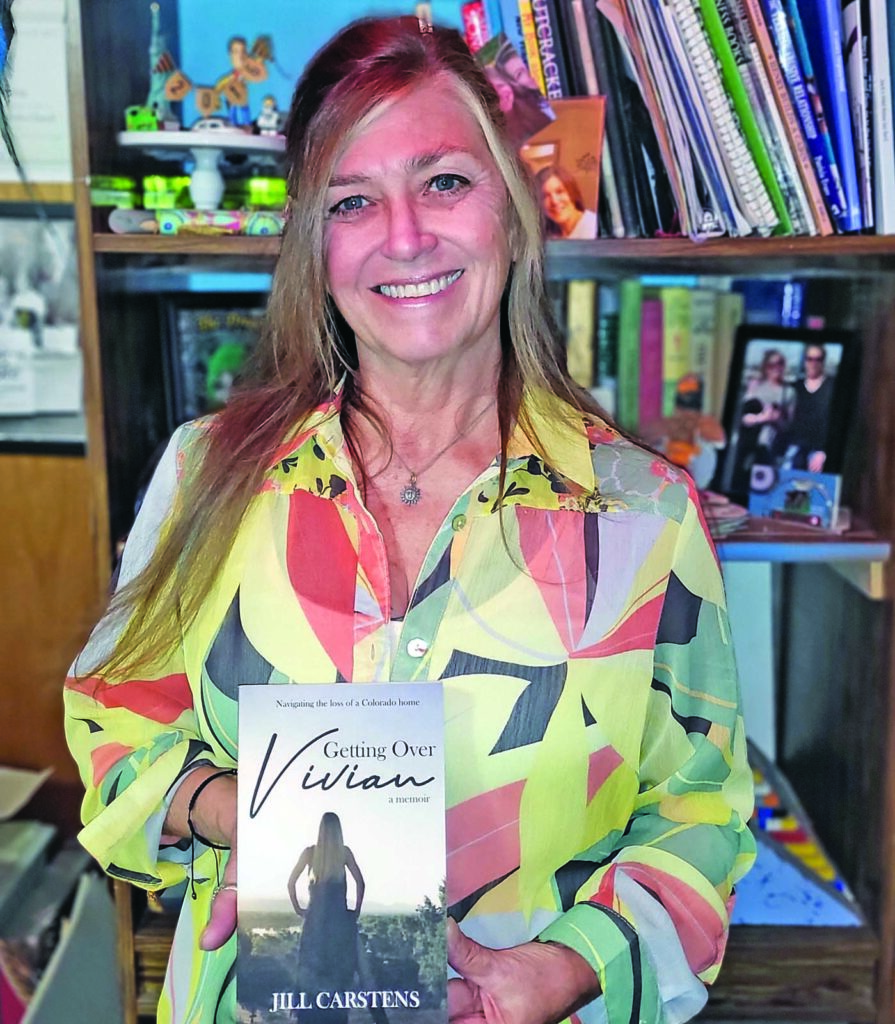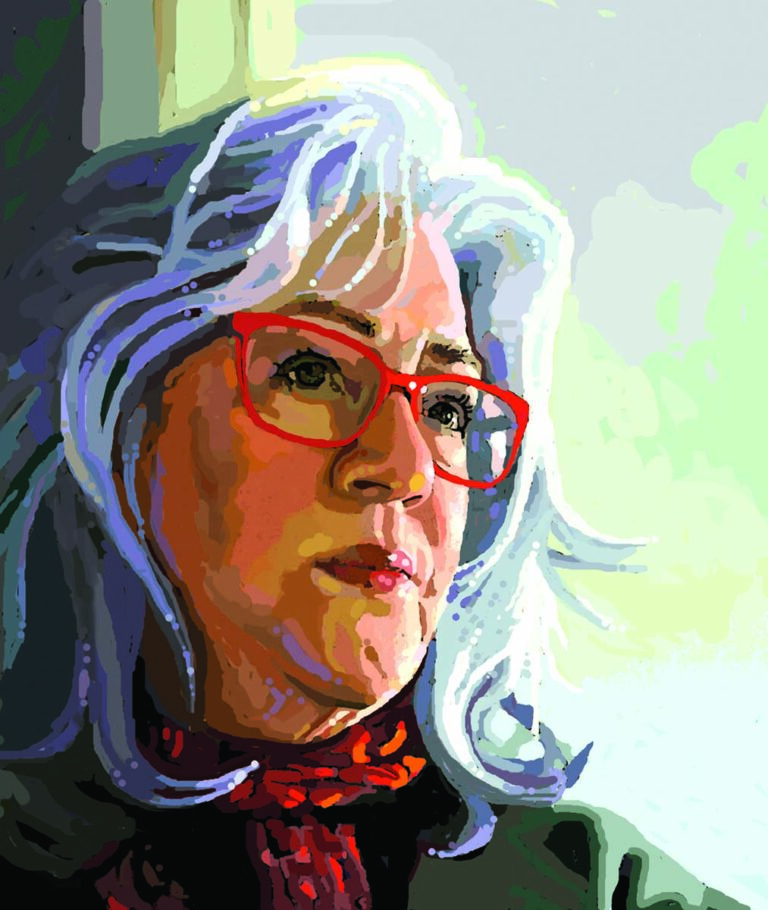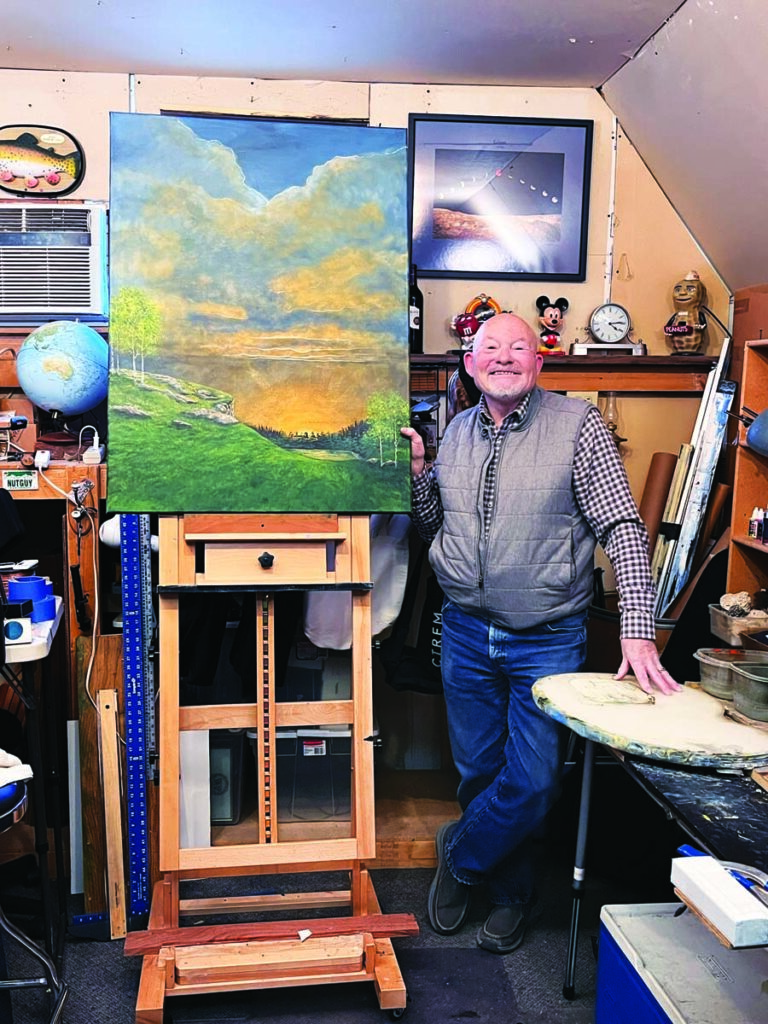A pink desk and pink diary helped a then-Wheat Ridge child learn to write. Her exploration of Denver more than two decades ago resulted in Jill Carstens’ first book.
“Getting Over Vivian: A Memoir” tells a story of “family, love and loss set against a backdrop of familiar Front Range settings,” wrote Kathryn White in The Denver North Star. “And it’s a story about a changing place and the people who live, or lived, there.”
Carstens and her family moved from Kansas City to the Applewood area near Wheat Ridge when she was three years old. In 1968, the family built a home on Vivian Street in the northern part of the city.
“We had views of the mountains and wide open spaces,” Carstens recalled. “Our whole family embraced it; it was a great place to grow up.”
But the family was split after Carstens’ parents went through a difficult divorce. Carstens said their parents told them they would eventually get over it, “but I never really did. It was the filter through which I saw so many things.”
Carstens said writing the book helped reconcile her sadness.
“I realized I was depressed for a long time,” she said. “It was very cathartic, there were a lot of tears and I would talk to my parents about what happened during their difficulties.”
When Carstens was 10 in the mid-1970s, her mom painted an old 1800s school desk a frosty pink and placed it in a corner of her daughter’s bedroom.
“When I wasn’t playing school at that desk, I wrote in my first diary, which was also pink,” Carstens stated on her website. “Writing has been a need as essential to my well-being as water.”
She would sit at that pink desk, “immersed in a methodical silence. That solitude permitted me the luxury, if not necessity, to ponder,” she continued. “It still amazes me how the serendipitous placement of a particular item in a room; a warm lamp or a shelf to house favorite books, can transform an environment and sometimes provoke new behavior. An item placed just so. Changing destiny. A magical renovation.”
Carstens graduated from Wheat Ridge High School and Colorado State University in Fort Collins, then returned to Denver to search for “third places.” The term refers to where people spend time between home (first place) and work (second place). Places where people exchange ideas, have a good time and build relationships, Carstens explained in an email.
“For me in Denver in the 1990s, those places were the Wynkoop Brewing Co., the Mercury Cafe, Paris on the Platte, City Spirit and many more, some that are still going and most are now gone,” she added.
As a waitress at the Wynkoop Brewing Co., Carstens called it a “home away from home for my brother and I as we tried to figure out our lives.”
Other “third places” she recalled were El Chapultepec, a jazz and blues venue on 20th Street and Market, The Wazee Supper Club, a now-closed restaurant on 15th Street and Wazee, Common Grounds, a now-closed coffee shop on 44th Avenue and Vallejo Street, and more in the mountains.
Kirstin Litz, a childhood friend of Carstens, recognized many of the memories in “Getting Over Vivian,” Litz wrote in an email.
“The book reminded me of our childhood and her family,” Litz added. “It made me wish I had been living in Colorado in the 1990s to see all the amazing places she mentioned. It also made me a little sad that she and I were not better friends during high school and after. It is something that I am more than willing to work on now that she and I have reconnected.”
Maria Hoffman met Carstens in middle school, and they were close friends in high school.
“I remember Jill’s childhood home so well. It was modern for its time and ‘so cool’,” Hoffman wrote in an email. “I knew Jill during her parents’ divorce and knew she was sad, but I was a typical teen and wasn’t fully aware of how deeply sad she was.”
Carstens said she wrote the book — sporadically — throughout six years.
“I didn’t know it would be a memoir but I had an urge to finish it with all the changes going on in Colorado,” Carstens said.
A broken leg left her unable to walk for five months, giving her time to finish it about a year ago, Carstens added.
“Letting it go and putting it out there was kind of like giving up a baby for adoption,” Carstens said. “This was a big part of my life and it’s kind of a weird feeling to share it.”







